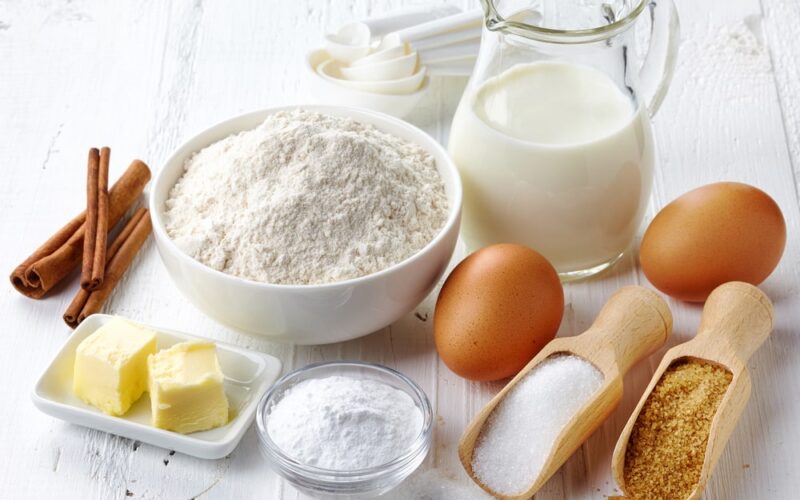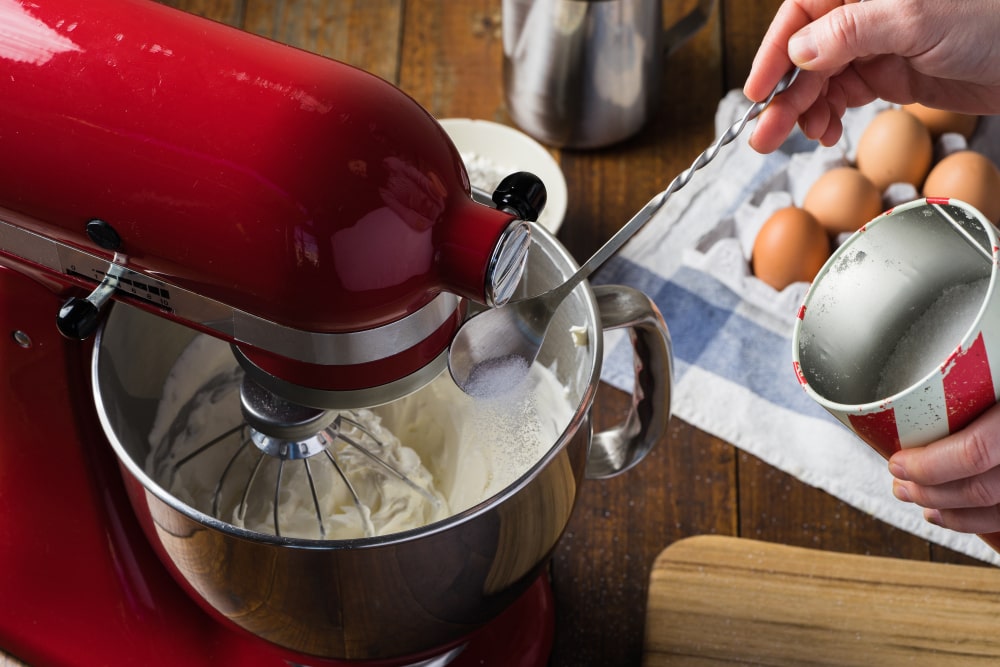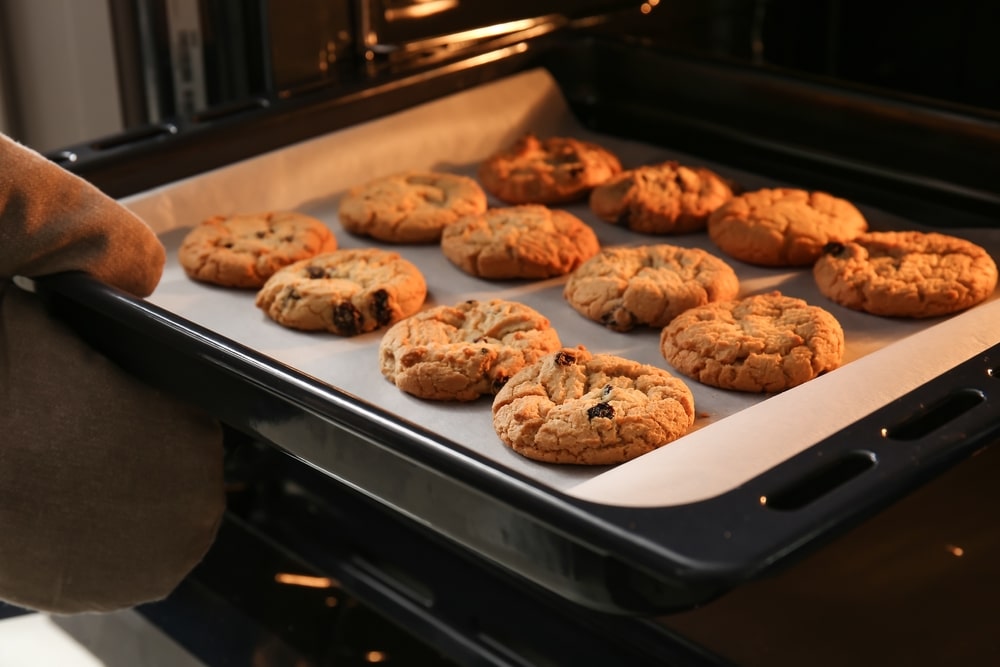Baking Basics: Tips and Tricks for Beginners and Experts

Baking is one of the most beloved pastimes that brings great amounts of joy to people. And why not, when there is such a wide variety of desserts and goodies ranging from cookies to cakes to pies!
Whether you’re a beginner who is new to baking or an expert looking to brush up on skills, this blog will introduce or refresh your knowledge of some of the important baking basics.
The Baking Fundamentals
For readers who are new to baking, one of the first tasks you must do before anything else is to go over a few basics of baking. These tips may not apply to every pastry or dessert you decide to make but are helpful to run through when prepping your kitchen.
With that in mind, here is a list of recommendations and suggestions to review before beginning.
1. Read the Recipe
This may seem like baking 101, but it’s very important to always review your recipe and all its components before you even begin pouring ingredients into your bowl. After all, you don’t want to be halfway through your recipe before realizing you don’t have any eggs or oil.
There is a term that many bakers like to use, “mise en place.” In French, the phrase means to “set up” or gather “everything in place.” Put simply, it refers to the idea of having all of the ingredients and components of your dish prepped and ready before you even start.
Run through your recipe at least twice before starting. Do you have all your ingredients? What equipment will you need or is recommended for use? Do certain ingredients need to be at a certain temperature? How hot should your oven be preheated?
2. Know Your Measurements
If you are new to baking and attempting to follow your first recipe, be sure to pick one that uses measurements that you are familiar with. For most first-time bakers, you’ll have an easier time with measurements such as cups and tablespoons, but it varies.
The point is to pick a measurement system that you feel confident following. Though we will have some conversions listed further down in this guide, the baking process will go more smoothly if you use a system where you won’t have to keep having to go online and convert the ingredient portions
3. Consider Substitutions
You may find that certain ingredients are hard to come by, or that you cannot consume them due to a dietary restriction or allergy. As many experts will know, there are plenty of baking substitutes that exist to help you achieve the same (sometimes healthier) result.
But as always, be careful when you make your substitutions. Sometimes, even changing one ingredient can have a profound effect on the finished product, whether it be the taste or structural integrity of the treat. Be aware of what these effects may look like.
Baking Tools and Equipment
Once you have reviewed your recipe and have gathered your ingredients, it’s time to review what supplies you will need.
Of course, there are a few obvious baking essentials you will need: a bowl, something to mix your ingredients, and (depending on what you are baking) a baking sheet or pan.
But many more pieces of equipment can help make your baking experience easier. Not every recipe will require all of these items, but they are certainly handy to have just in case.
Here is a list of beginner baking supplies that we highly recommend any new baking enthusiast should have on hand:
- Measuring cups and spoons (specifically for tablespoons and teaspoon measurements)
- Kitchen scale
- Hand/Stand mixer
- Muffin pan
- Sifter/Sieve
- Whisk and/or Spatula
- Cookie cutters for themed or Christmas cookies
- Cooling rack
Baking Measurements and Conversions
As mentioned earlier in the blog, beginners should start with a recipe using measurements they are familiar with. However, that doesn’t mean that there isn’t space to learn how to do basic conversions.
Here is a baking measurement converter we found that will allow you to input whatever measurement you are looking to change.
Baking Techniques for Beginners
Now it’s time to go over a few techniques/practices to keep in mind when baking. As stated before, these suggestions may not all apply to the goodies you are attempting to bake but we encourage you to keep them in mind when reviewing what needs to be done.
Here are some of the most common tips for new bakers and some points of review for experts to brush up on.
- Creaming your butter and sugar. This step matters as it helps create enough air bubbles to leaven your baked goods and helps achieve the right finished texture.
- Separating egg yolks from the whites. Some recipes may specify only needing either the yolks (which are more fatty and provide richness to your mixture) or the whites (which contain more protein and create lighter textures in certain mixtures), so this is a useful trick to know.
- Chilling your cookie dough. Sticking your prepared cookie dough in the fridge for anywhere from 30-60 minutes will help to solidify the fat in the dough. So when you shape and place your dough in the oven, it will be more likely to keep its shape and have a stronger flavor.
- Leavening agents and knowing which to use. Knowing which leavening agents to use in your baking will help you to identify what will best hold your baked goods’ structure together while creating a more soft and delicious texture.
- Straining your ingredients. Some recipes specify straining liquid or sieving dry ingredients to ensure that any clumps missed in the later mixing process don’t affect how certain desserts rise or taste later. It may seem like an unnecessary extra step, but it’s recommended for ingredients such as flour or cocoa powder.
Catching Baking Mistakes
It’s important to know that no matter how closely you follow a recipe, mishaps will often happen
Here is a list of common mistakes that often happen with new bakers that you should keep an eye out for when starting out.
- Not measuring ingredients correctly
- Not baking at the right temperature
- Items not baking/rising properly
- Items sticking to the pan (or not using the correct type of pan)
- Not letting items cool before decorating
Even being on the lookout for these potential stumbles, never forget that the perfect baker doesn’t exist. Mistakes happen, and giving up after one or two won’t allow you to grow. Like with any hobby, practice makes perfect, and you can only continue to improve.
Baking shouldn’t be stressful; it should be a fun activity that can take your mind off of things or an experience you can share with friends and family.
So if it’s your first time baking cookies for a special occasion or attempting a cheesecake or fastnacht, don’t worry about perfection! Enjoy yourself and go for it!
Ready to start baking and looking for ideas? Check out our Dessert Recipe Selection on our Fresh Food Website for dozens of baked goods and other sweet recipes perfect for both expert and beginner bakers!


